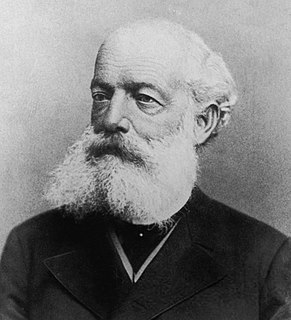A Quote by Leo Tolstoy
The question was a fashionable one, whether a definite line exists between psychological and physiological phenomena in human activity; and if so, where it lies?
Related Quotes
I am somewhat uncertain whether there is a definite factual question as to whether natural language handles truth-value gaps. Nor am I even quite sure that there is a definite question of fact as to whether natural language should be evaluated by the minimal fixed point or another, given the choice of a scheme for handling gaps. We are not at the moment searching for the correct scheme.
I am convinced that an important stage of human thought will have been reached when the physiological and the psychological, the objective and the subjective, are actually united, when the tormenting conflicts or contradictions between my consciousness and my body will have been factually resolved or discarded.
Lies 1: There is only the present and nothing to remember. Lies 2: Time is a straight line. Lies 3: The difference between the past and the futures is that one has happened while the other has not. Lies 4: We can only be in one place at a time. Lies 5: Any proposition that contains the word 'finite' (the world, the universe, experience, ourselves...) Lies 6: Reality as something which can be agreed upon. Lies 7: Reality is truth.
The objective psychologist, hoping to get at the physiological side of behavior, is apt to plunge immediately into neurology trying to correlate brain activity with modes of experience ... The result in many cases only accentuates the gap between the total experience as studied by the psychologist and neural activity as analyzed by the neurologist.
The obscure only exists that it may cease to exist. In it lies the opportunity of all victory and all progress. Whether it call itself fatality, death, night, or matter, it is the pedestal of life, of light, of liberty and the spirit. For it represents resistance -- that is to say, the fulcrum of all activity, the occasion for its development and its triumph.
The question whether atoms exist or not... belongs rather to metaphysics. In chemistry we have only to decide whether the assumption of atoms is an hypothesis adapted to the explanation of chemical phenomena... whether a further development of the atomic hypothesis promises to advance our knowledge of the mechanism of chemical phenomena... I rather expect that we shall some day find, for what we now call atoms, a mathematico-mechanical explanation, which will render an account of atomic weight, of atomicity, and of numerous other properties of the so-called atoms.
The real question today is not when human life begins, but, what is the value of human life? The abortionist who reassembles the arms and legs of a tiny baby to make sure all its parts have been torn from its mother's body can hardly doubt whether it is a human being. The real question for him and for all of us is whether that tiny human life has a God-given right to be protected by the law - the same right we have.





































